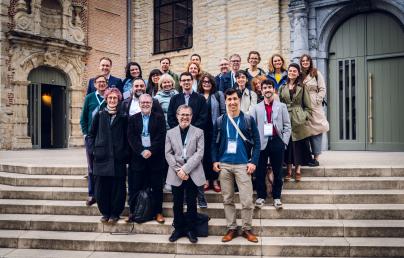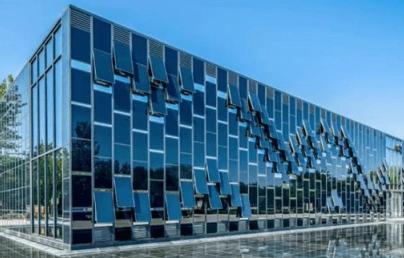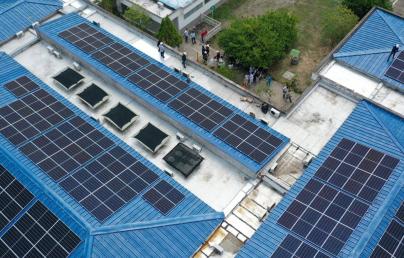
ComActivate project: New initiative to address energy poverty in Central and Eastern Europe

ComActivate project: New initiative to address energy poverty in Central and Eastern Europe
A new project has launched to respond to sluggish renovation rates of residential buildings and high energy poverty levels in Central and Eastern Europe by empowering local communities and developing Neighourhood Energy Sufficiency Roadmaps.
Funded by the European Union’s LIFE Programme, ComActivate will develop, demonstrate and advocate solutions for multi-family apartment buildings that reduce energy poverty, enhance energy security, and bring building emissions in line with climate targets.
The project comes at a critical time as energy poverty affects a significant share of the population across the EU: In 2022, 41 million EU citizens (9.3% of the population) couldn’t afford proper heating due to a cost-of-living crisis and soaring energy costs. Countries located in Central and Eastern Europe are particularly affected: In Bulgaria, 22.5% of the population could not keep their home adequately warm. ComActivate will be implemented in three municipalities across Bulgaria, Hungary, and Lithuania, each facing unique climatic challenges but sharing common characteristics rooted in their Socialist history and housing privatization in the 1990s.
Key components of the ComActivate project include:
Institutionalising resource centres: Local resource centres will serve as hubs for engaging with energy-poor communities and facilitating agreements within Homeowner Associations.
Developing Neighbourhood Energy Sufficiency Roadmaps: These roadmaps will address the complexities of renewable energies for multi-family apartment buildings, ensuring energy needs are met while advancing poverty alleviation and climate neutrality goals.
Building capacity and raising awareness: ComActivate will empower managers of homeowners associations with the knowledge and skills needed for energy-efficient renovations while raising awareness about the benefits of such initiatives within local communities.
Establishing policy and investment dialogues: By fostering multi-stakeholder dialogues at both the national and EU levels, ComActivate aims to ensure the sustainability of resource centres and the successful implementation of Neighbourhood Energy Sufficiency Roadmaps.
'ComActivate represents a vital step towards creating more sustainable and resilient communities in the face of escalating energy poverty and climate change,' says Zuzana Matusova, Project Leader at Nadacia Habitat for Humanity International. 'By focusing on Multi-Family Apartment Buildings – where around 60% of people in CEE reside – we aim to develop comprehensive solutions that not only improve energy sufficiency and alleviate poverty, but also ensure a better quality of life for all.'
'Addressing energy efficiency in residential buildings is not only about cutting energy bills, but also about improving the health and comfort of residents who deserve to live in decent buildings' says Dóra Zágoni, ComActivate partner and Energy referent for Józsefváros district, Budapest. 'ComActivate is instrumental in tackling the major barriers hindering the accelerated refurbishment of residential buildings in Central and Eastern Europe. In Józsefváros, the majority of residential buildings are facing serious energy efficiency problems due to decades of insufficient financing, with residents often affected by energy poverty. We hope that the project will provide an opportunity to build momentum and encourage energy renovations'.
ComActivate is a collaborative effort involving various partners throughout Europe, from local to national and EU level:
Nadacia Habitat for Humanity International – project leader
Jozsefvaros municipality, Budapest, Hungary
Kaisiadorys Municipality, Lithuania
Burgas Municipality, Bulgaria
Habitat for Humanity Macedonia – Associated partner
More information and the latest updates can be found here.
About ComActivate
ComActivate responds to growing levels of energy poverty across the EU, especially in the CEE region, by addressing the poor energy efficiency of buildings as a major driver of energy poverty, and as a driver of climate change. The project aims to ensure the energy sufficiency of vulnerable people living in multi-family apartment buildings in Central and Eastern Europe by developing best practices for clean energy production, consumption and efficiency measures at the neighbourhood level. Partners will work over the next 3 years with three local municipalities to test the approach and replicate best practices from ComActivate in other regions.

